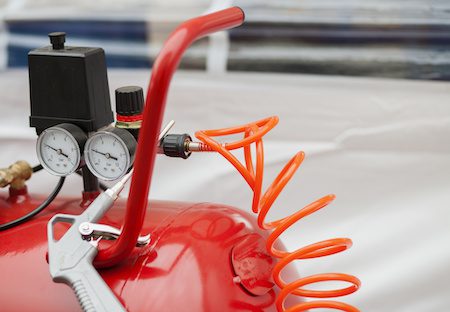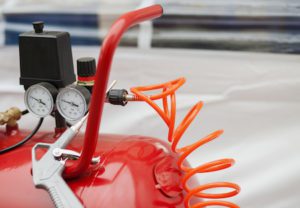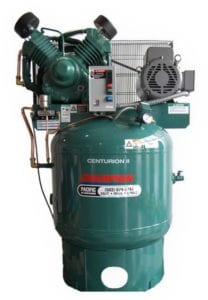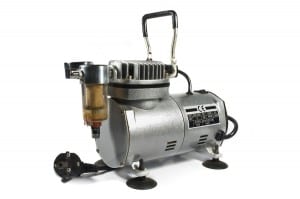
How Can Your Business Maintain Its Air Compressors?
A good craftsman always takes care of their tools, and a good business owner always takes care of their assets. The average startup spends anywhere from $10,000 to $125,000 on equipment upfront, depending on the industry.
Well, that's not too bad for most businesses, as startups will usually factor in these costs. The problem arises when they need to replace this equipment within the first couple of years in operation. Luckily, that doesn't have to be the case with proper care.
Let's talk about how to maintain your business's air compressors so you won't have to replace them any time soon!
Common Issues With Air Compressors
Before we discuss maintenance, let's first discuss some of the most common issues with air compressors. Indoor use, outdoor use, automotive, construction, it doesn't matter. Air compressors are never perfect and they need to be maintained for long-term use. Here are some of the biggest concerns.
Water Buildup
With the amount of pressure inside an air compressor, the tank needs to be strong. Iron is one of the most durable materials we use that's so widely available, but it isn't perfect. Rust is a serious concern for air compressors.


Luckily, there is a valve at the bottom to allow you to empty it out. More on that later.
Energy Consumption
If it requires more energy to perform the same tasks, this could be a number of issues, including a clogged filter, air intake issues, or motor issues. Either way, it will cost more to run it and take longer to compress air, which may delay certain projects, especially for a small air compressor.
Also, if your engine or motor is forced to work overtime, this could lead to unnecessary wear and tear, shortening your compressor's lifespan.
Engine Issues
No engine will last forever, but you can help prolong it. There are many common issues that come with small engines, and most of them have easy solutions.
If you have a gas-powered engine, it will require the same type of maintenance as a car or a lawnmower. It needs lubricant, spark plugs, fuel, and clean oxygen to function properly.
For electric compressors, there could be electrical issues inside the motor, and you may have to consult with your manufacturer if that's the case.
Wear & Tear
The bane of any owner's existence is general wear & tear. It will never be avoided entirely, but there are ways to limit it around your entire system.
Once again, like a car, air compressors have several moving parts that are essential to proper function. If you're paying attention to all but one, you may as well not have paid attention to any, as one neglected aspect can destroy your asset.
How to Maintain Your Air Compressors
Generally speaking, you get what you pay for. Sometimes, keeping an air compressor for the long haul starts with buying the right model. This should include reading reviews and buying the right size for the amount of work it will perform.


For example, if you're occasionally using an air compressor for a nail gun, you can get away with using a small tank. However, if you're running a tire shop, you'll need a much larger air compressor.
Also, read customer reviews to see if people have had any maintenance issues. We're fortunate enough to have access to that information before purchasing equipment, so take a minute to choose the right model for your needs. Once you have it, here's how to take care of it!
Drain After Use
This is especially true if you use your air compressor heavily throughout the day. If you fill up your bicycle tires, it might not be a big deal. However, if you're filling up car tires, blowing away dust, or using a nail gun throughout the day, then you'll need to drain it at the end of the day.
Doing this daily will prevent rust from building up inside and alleviate the pressure buildup for storage. Try to avoid storing your compressor for longer than overnight when full.


At the bottom of your compressor, there should be a drain plug. Simply unscrew this with your fingers and tilt the compressor to allow any water buildup to escape.
If this isn't enough, there are other ways to remove water buildup in your compressor. It's especially important to remove water in the winter, as you don't want water to freeze inside your compressor.
Also, any condensation you have may be going into whatever you're pumping air into. This may cause damage to your customers' tires or other places where water shouldn't be.
Replace the Air Filter
A dirty air filter will cause a greater energy demand for your compressor. It will have to work harder for simpler tasks, which may also delay your work. If you're trying to use a nail gun, it takes a lot of continuous force to lay each nail deep enough.
If your compressor isn't able to keep up with this demand, the simplest solution you can troubleshoot is to replace the air filter. A quick change will improve performance and reduce the risk of any unwanted materials entering the air chamber.
Clean Intake Valves
Over time, airborne particles will build up in the air intake valves. This isn't a big deal as long as you keep them relatively clean. If it builds up too much, it can block airflow, which can demand more energy and cause other problems.
Change Oil
For gas-powered air compressors, the oil will need to be changed just like any engine. If you're using an electric air compressor, don't worry about this step.
This is especially important if you work in moist conditions. Humid areas are bound to experience more condensation, which is more likely to harm the engine. If that's the case, change the oil more frequently and try to run the compressor for longer periods (occasionally) to allow the engine to evaporate existing condensation.
Changing the oil on an air compressor is very simple and it only takes a small amount of oil, and the oil should be changed every 4000 hours of use. With heavy use (daily), do this as often as you feel comfortable with. A $20 bottle of oil will last for a long time with these compressors, so feel free to change the oil every 1000 to 2000 hours as you see fit.
On most models, you can check the oil level on the side. If it's below the dot or if it's visibly dirty, then it's time to change it. There should be a drain valve and a cap to replace the oil, so follow the instructions on your particular model and change away!
Monitor the Temperature
Especially with gas engines, if the compressor gets too hot, it will accelerate wear and tear. Most air compressors will come with a temperature gauge. Take a look at the temperature periodically while it's running and see what you can do.
You may just need to turn off the engine for a little, change the oil, or check the air intake valve. If you've kept up with routine maintenance on this list, this shouldn't be an issue. However, if it's running hotter than it should, contact the manufacturer.
Protect From Surges
Surges and power outages can harm an electronic motor. For electric generators, make sure you have an energy backup solution in case of an outage or electrical issue on the power grid.
Secure Fasteners
If your hoses and valves aren't fastened well enough, there could be air leaks. If you're worried about air leaks, check the tightness of your fasteners and secure them. If you still notice air loss, take a closer look at the hoses.
A smoke test can help you find the hole if there is one, but you may be able to notice one without. If you do, either patch it up or replace the hose to save some energy and time.
Another potential issue could be the fit. Check your fittings to make sure everything is the right size and not causing any air leaks.
Keep It Running
Now that you know how to take care of your air compressors, treat them like you treat your vehicles and keep them in good shape. It pays to keep your business assets for as long as possible, so save yourself some money and follow these simple tips!
Stay up to date with our latest reviews and tips on business products and feel free to contact us with any questions!
Author: Hudson Piccini
Hudson Cynar, a Harvard University alumna and the owner of three prosperous enterprises, is a distinguished business consultant, author, and writer. Her expertise spans multiple business sectors, with a particular emphasis on storage containers, commercial copiers, payroll services, and medical billing software. Dedicatedly investing thousands of hours into product and service research, Hudson crafts insightful reviews to guide entrepreneurs in making informed decisions for their businesses.
